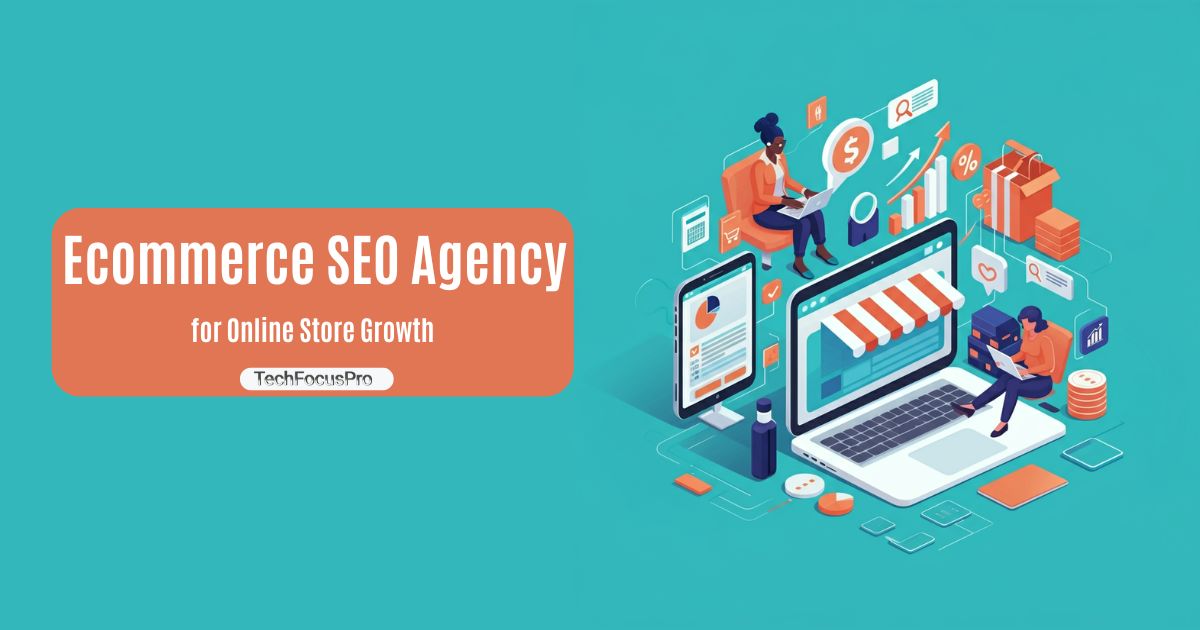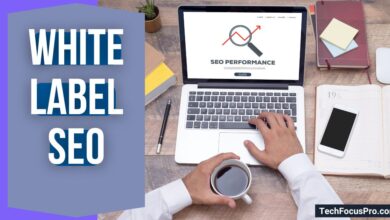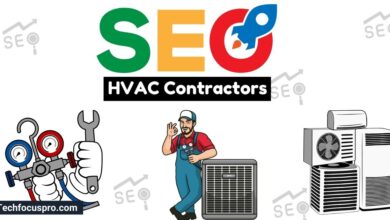Why an Ecommerce SEO Agency is Essential for Online Store Growth

The e-commerce industry has expanded rapidly in recent years. With millions of consumers increasingly purchasing from the comfort of their homes and more businesses bringing their operations online, online retailers face greater competition than ever before. In this competitive industry, having a fantastic website or superior products is no longer enough for any online retailer to distinguish.
Search engine visibility on sites like Google is one of the most crucial factors for online retailers to flourish. When individuals look for things to purchase, they click on the first few results that appear. An online store may lose out on many prospective clients if it does not appear on the first page of search results. Search engine optimization (SEO) is crucial for this reason.
Helping online retailers increase their search engine presence is the specialty of an e-commerce SEO business. They employ tried-and-true tactics to raise their website’s search engine ranks, draw in more visitors, and convert those people into loyal customers.
Online retailers can ensure they are operating at peak efficiency, staying ahead of the competition, and reaching more consumers prepared to make a purchase by collaborating with an SEO service.
Understanding E-commerce SEO
What is the definition of e-commerce SEO, and how does it differ from regular SEO?
The practice of making a website for an online store more search engine friendly is known as e-commerce SEO. The objectives are increasing sales and attracting more customers to the store.
E-commerce SEO, in contrast to standard SEO, is designed especially for online retailers and concentrates on increasing search exposure for general websites. Product descriptions, photos, and category pages are all optimized as part of this process.
To increase its focus on converting visitors into buyers, e-commerce SEO additionally gives priority to keywords associated with buying intent.
Furthermore, it frequently incorporates tactics like enhancing mobile friendliness, site performance, and secure checkout procedures to provide a better buying experience.
Key Elements of E-commerce SEO
1. Keyword Research and Targeting for Product Pages
Consumers use terms to look for products, known as keywords. Finding the correct keywords for e-commerce websites that correspond with what your clients are looking for is crucial.
When someone searches for what you sell, your product pages appear. Pay attention to keywords that convey a desire to purchase, such as “affordable smartphones” or “buy sneakers online.”
2. Optimization of Category and Product Descriptions
When you write clear descriptions for your products and categories, search engines can better comprehend your sites.
Make sure your descriptions are easy for clients to read, organically contain the appropriate keywords, and properly explain what you are selling. Always include adequate information to address frequently asked customer queries regarding the product.
3. Technical SEO Aspects Like Site Speed and Mobile Responsiveness
A mobile-friendly design and a website that loads quickly are essential for e-commerce success. Slow pages annoy customers, and more people are shopping on their phones.
Increasing site performance and making sure the website functions properly across all devices will enhance user experience and SEO rankings.
The Importance of Building a Solid SEO Foundation for Long-Term Growth
Although SEO takes time, laying a solid foundation is worth the work.
Concentrating on well-chosen keywords, excellent content, and a technically solid website can help your online store draw more customers and expand gradually.
Additionally, a solid foundation keeps you competitive as search algorithms and consumer behavior evolve.
How an E-commerce SEO Agency Drives Growth? Why an Ecommerce SEO Agency is Essential for Online Store Growth
- Expertise and Resources Unique to Specialized Agencies: Ecommerce SEO Agency can bring specialized skills and tools tailored to online stores. Their expertise allows them to focus on solving challenges specific to e-commerce websites, ensuring better results for your business.
- Enhanced Keyword and Competitor Analysis: These agencies conduct in-depth keyword research and competitor analysis specifically designed for e-commerce platforms. This helps identify the best opportunities to rank for terms that directly increase sales.
- Improving User Experience (UX): E-commerce SEO agencies enhance user experience by optimizing site architecture and navigation. A well-organized site makes it easier for visitors to find what they need, which can lead to higher engagement and conversions.
- Boosting Organic Traffic and Conversions: Strategic content marketing is another strength of specialized agencies. They create optimized product pages, blog posts, and guides that attract more organic traffic and convert visitors into customers.
- Addressing Technical Barriers: E-commerce websites often face issues like crawl errors or duplicate content. SEO agencies are skilled in resolving these technical problems, ensuring your site is optimized for search engines and runs smoothly.
The Role of an Ecommerce SEO Agency
An e-commerce SEO Agency offers special services for online stores. They focus on:
1. Keyword Research and Optimization
For internet retailers, choosing the appropriate keywords is crucial. SEO services use specific techniques to identify the keywords that individuals use when making purchases. Then, they optimize your content, categories, and product pages for these keywords. It’s not enough to just put keywords everywhere. It involves analyzing search trends, figuring out what people want, and creating content that appeals to search engines and users. This helps ensure that the proper people see your products when they want to buy.
2. Technical SEO for Online Stores
Technical SEO is like the backbone of a good e-commerce site. It includes:
- Making the site faster (47% of people expect a page to load in two seconds or less)
- Making sure the site works well on phones (55.4% of internet users shop on mobile devices)
- Using special code to make search results look better
- Making the site easy for search engines to understand
- Fixing problems with duplicate content, which is common for online stores
- Making sure the site is secure for buying things
An Ecommerce SEO Agency can handle all these technical things so you can focus on running your business. They make sure your site not only looks good but also does well in search results.
3. Product Page Optimization
Your product pages are really important. SEO agencies make these pages better by:
- Writing good descriptions and titles that make people want to click
- Making product images better for search engines
- Writing unique and helpful product descriptions
- Adding customer reviews (websites with reviews are 52.2% more likely to sell things)
- Using special code to make products show up better in search results
- Making the web addresses for products easy to understand
4. Content Strategy for E-commerce
Content is really important for SEO, even for online stores. An SEO agency can help you make:
- Helpful blog posts about specific topics
- Guides to help people choose what to buy
- FAQ sections to answer common questions
- Videos to show off products
- Ways for customers to share their own content
This content helps with SEO and also makes customers trust you more. It can really help more people find your site and buy things.
Also Explore: Strategies for Effective B2B SEO: Navigating the Digital Landscape
Case Studies and Success Stories
Examples of online stores that achieved growth with the help of e-commerce SEO agencies.
These five e-commerce websites showcase how powerful SEO strategies can lead to exceptional online success.
From Amazon’s keyword-focused product titles and user-generated content to ASOS’s mobile-first approach and content localization, each brand has excelled in targeting key areas of optimization.
Zappos stands out by prioritizing long-tail keywords and detailed product descriptions, While Etsy leverages user-generated content and natural backlinks to dominate rankings.
Best Buy’s strong focus on local SEO and integration of “buy online, pick up in store” services highlights the significance of catering to online and offline audiences.
By adopting similar strategies—such as optimizing for mobile, encouraging customer reviews, leveraging long-tail keywords, and focusing on localized content—e-commerce businesses of all sizes can boost their visibility, drive more traffic, and increase conversions in today’s competitive market. The ultimate takeaway is to remain adaptable, understand your audience, and continuously refine your SEO efforts to stay ahead in the evolving digital landscape.
SEO for E-Commerce Tips to Increase Your Online Store’s Traffic

Search engine optimization (SEO) is crucial for the success of any e-commerce store. By implementing the right strategies, you can attract more visitors to your site, improve your visibility in search results, and boost sales. Here are some white label practical and easy-to-follow tips to enhance your e-commerce SEO:
1. Optimize Product Pages
Make sure your website’s product pages are search engine optimized. Use well-written product descriptions, clear and descriptive titles, and pertinent keywords that correspond with what clients are looking for. Utilize high-quality photos and videos to improve the user experience and raise your ranks.
2. Use Long-Tail Keywords
Long-tail keywords are specific phrases consumers may employ when looking for a product. For instance, you may target “women’s running shoes with arch support” rather than “shoes.” Because there is frequently less competition for certain keywords, it is simpler for your store to rank higher.
3. Optimize for Mobile
A website responsive to mobile devices is crucial because many clients purchase on their cell phones. Ensure your website runs fast, is user-friendly, and is easy to use on small displays. Mobile optimization is another important component of Google’s ranking algorithm.
4. Improve Page Loading Speed
Speed Up Page Loading Websites that take a long time to load might irritate visitors and raise bounce rates. Use tools like Google PageSpeed Insights to assess your website’s speed and fix problems like excessive file sizes, poorly optimized pictures, or sluggish server response times.
5. Encourage Customer Reviews
Positive evaluations increase your site’s SEO and help you gain the trust of potential customers. Reviews and other user-generated material give your product pages new, keyword-rich content that improves their search engine optimization.
6. Focus on Local SEO
Optimizing for local searches can be advantageous if you own a local online store. To draw in local clients, mention your location in the text of your website, claim your Google My Business listing, and promote local reviews.
7. Build High-Quality Backlinks
Backlinks, or links pointing to your website from other websites, tell search engines that your website is reliable and reputable. To obtain useful backlinks, contact blogs, influencers, or trustworthy websites in your niche and work together.
8. Leverage Social Media
Social networking can raise the visibility of your content and improve website traffic, even though it has no direct effect on SEO results. To attract a larger audience, share your blog entries, special offers, and items on social media sites like Facebook, Instagram, and Pinterest.
9. Create Engaging Blog Content
By including a blog in your e-commerce site, you can target more keywords, answer consumer inquiries, and offer product advice. Excellent educational material can draw in new users and maintain the interest of current clients.
10. Track and Analyze Performance
Track user activity, keyword rankings, and traffic with tools like Google Analytics and Google Search Console. This information helps you identify what is effective and directs your ongoing development.
Following these SEO tips can position your e-commerce store for long-term success. Remember, SEO is an ongoing process, so stay updated with the latest trends and refine your strategy as needed. This will ensure your online store remains competitive and attracts the customers you’re looking for.
Common Mistakes in E-commerce SEO Without Professional Help
Poor Keyword Targeting Leading to Low Visibility
One of the most common mistakes in e-commerce SEO is improper keyword targeting. This often happens when store owners fail to conduct adequate keyword research or rely on highly competitive and overly generic terms.
Your online store may struggle to gain visibility in search results without focusing on specific, long-tail keywords that align with the user’s search intent.
Additionally, stuffing content with irrelevant or excessive keywords can hurt rankings and lead to search engine penalties. To resolve this, thorough keyword analysis and relevance are key to capturing the right audience.
Neglecting Technical SEO and User Experience, Driving Customers Away
Technical SEO is the backbone of any successful e-commerce website, yet it is commonly overlooked. Issues like slow page load times, broken links, poor mobile responsiveness, or improper site structure can negatively impact search rankings and discourage users from staying on your site.
Furthermore, a complicated or clunky navigation system frustrates users, increasing bounce rates and reducing conversions.
Ensuring your site is properly optimized with tools like XML sitemaps, HTTPS security, and a logical hierarchy is essential to providing a seamless user experience that also appeases search engine algorithms.
Overlooking the Power of Localized and Voice Search Trends
Another major oversight is ignoring the rapid growth of localized and voice search trends. Consumers often use phrases like “near me” or “best [product] in [location]” when searching for items, which makes optimizing for local SEO critical for driving nearby traffic.
Similarly, with the increasing popularity of smart assistants like Alexa and Siri, voice search queries tend to be more conversational and longer in format.
Failing to adapt your content for these trends means missing out on significant opportunities to attract a broader audience. Optimizing for local search and creating content that mimics natural speaking patterns is essential to stay competitive.
By avoiding these common mistakes and seeking professional help, e-commerce store owners can significantly improve their SEO performance and drive sustainable growth.
How to Choose the Right E-commerce SEO Agency?
A crucial first step in increasing the exposure and expansion of your online store is choosing the best SEO agency. Examine their experience first; an agency with a track record of success is better suited to manage the particular difficulties presented by e-commerce. Request case studies or samples of their prior work as well. This will provide you with information on the outcomes they have produced for companies similar to yours. Knowledge of the industry is also essential; working with an agency that understands your niche guarantees they can develop strategies specific to your target market.
“What strategies do you recommend for our industry?” “How do you measure success?” and “How will your efforts align with our specific business goals?” are some of the questions you should ask prospective agencies when you meet them. By asking these questions, you can ensure that the person you choose shares your vision and can produce outcomes that are important to you. Remember that the ideal agency is a beneficial partner in your e-commerce business, not just a supplier of services.
Hope so your question “Why an Ecommerce SEO Agency is Essential for Online Store Growth” is clear now.






